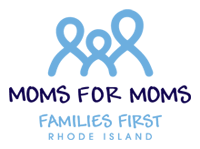Do I have Postpartum Depression (PPD)?
Pregnancy and childbirth is one of life’s most exciting and stressful times for a woman. There are many adjustments coming at you, some expected and some not. When you add the hormonal component, it is no wonder that many women find themselves in very challenging emotional territory. Some of the following symptoms are normal but too many of them can indicate a Postpartum Depression. This medical condition occurs in one out of five women within a year of giving birth. Onset can be gradual or rapid and can include depression, anxiety, and panic attacks.
What are Some Symptoms of PPMD?
- Feeling hopeless or helpless
- Sleep problems (can’t sleep even when the baby is sleeping)
- Extreme irritability
- No appetite or eating too much
- Excessive worry
- Anxiety
- Panic attacks
- Feeling disconnected from your baby
- Uncomfortable and/or intrusive thoughts
- Unable to cope with daily routines
- Lack of ability to enjoy life, even your new baby
- Extreme fatigue
- Social withdrawal
- Lack of motivation
- Crying a lot
- Feeling guilty
- Having trouble remembering and concentrating
- Having thoughts of hurting yourself or your baby
What PPD is NOT:
- PPD is Not something to be ashamed of
- It is Not your fault
- It is Not a sign of a weak personality
What PPD is:
- It is easily treatable
- It needs an evaluation by a medical professional such as a Psychiatrist, Clinical Nurse Specialist, or a Licensed Independent Social Worker(LICSW)
- A treatable problem that your OB or Primary Care Physician needs to know about
Real Women, Real Experiences:
Raising The Curtain was written and produced in order to convey the tremendous impact that the support of a Families First RI (FFRI) mentor can have on the lives of new mothers (and fathers) with PPD or other emotional difficulties. FFRI not only accepts mothers into the program who are diagnosed with PPD or anxiety, but we provide an intake evaluation to each mother which could identify undiagnosed psychological problems and lead to referral for treatment. Both mothers themselves as well as mentors and clinical staff in the film articulately and poignantly explain the FFRI experience. The film has been used as a fundraising tool and has aired on local PBS stations.
View the RAISE THE CURTAIN video:
Sources:
Postpartum Support International, Developing a Sustainable Perinatal Social Support Network In Your Community, First Edition, June 2007
Beyond the Blues: A Guide to Undrstanding and Treating Prenatal and Postpartum Depression by Shoshana S.Bennett, PHD. and Pec Indman, Ed.D., MFT

